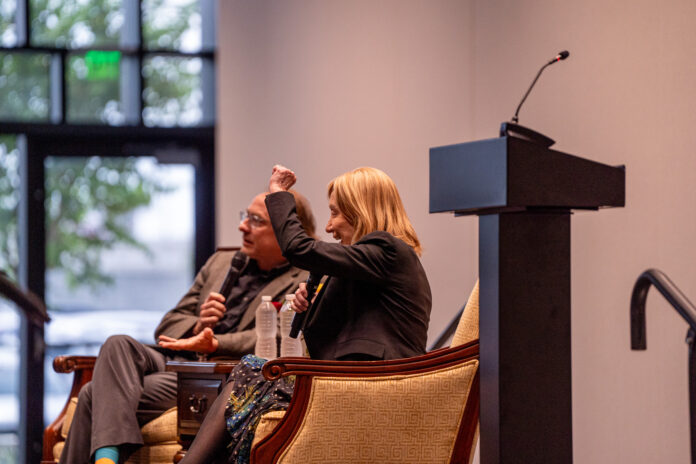
By Ariel Wright | Reporter
During the Beall-Russell Lecture in the Humanities on Monday, Dr. Doris Kearns Goodwin — a presidential historian and Pulitzer Prize-winning author — highlighted the significance of having empathy for past leaders while maintaining hope for the future.
“We have to have empathy for … the time in which they led and to understand that all of them are going to disappoint us, no matter what,” Goodwin said. “Even within their time, they’re going to make mistakes. They’re going to screw up. They’re going to do things that you wish they had done differently. But we have to have empathy for the context.”
Goodwin personally knew the president she wrote about in her first book, which was published in 1976 and was entitled “Lyndon B. Johnson and the American Dream.” Although she did not get the chance to know all of the subjects of her works personally, she utilized skills from her experience writing about Johnson for her other works.
“I realized later what a privilege [knowing Johnson] was when I went to study other presidents,” Goodwin said. “I was looking to try and not judge them either from the outside, but to learn as much about them that, with their flaws and their great strengths, I could bring them alive.”
Goodwin said it’s important to identify key leaders in American history — who she endearingly calls “her guys” — as not only influential leaders but also people who faced their own challenges while leading during turbulent times.
“I’ve learned so much about [Franklin D. Roosevelt], Teddy Roosevelt and [Abraham] Lincoln especially, but we don’t really hear too much about Lyndon B. Johnson,” Eagan, Minn., junior Theo John Milton said. “I think [Goodwin’s lecture] really humanizes all the presidents for me, especially Lyndon B. Johnson.”
Goodwin also encouraged the audience to understand that there was a common ambition among these presidents to strive for greatness.
“My biggest takeaway from the Goodwin lecture is the ambition behind leadership,” Chicago senior Michael Parker said. “I like how Goodwin explained that behind all of these great presidents was a peculiar ambition.”
The personifying nature of Goodwin’s lecture, especially her personal anecdotes relating to Johnson, offered a new perspective for students interested in history.
“After listening to Goodwin’s lecture, it is as if the presidents became people,” Parker said. “Her personification of the presidents allowed me to feel like I could be closer to them, perhaps even be a friend.”




